Welcome
I started this blog in 2013 to share my reflections on reading, writing and psychology, along with my journey to become a published novelist. I soon graduated to about twenty book reviews a month and a weekly 99-word story. Ten years later, I've transferred my writing / publication updates to my new website but will continue here with occasional reviews and flash fiction pieces, and maybe the odd personal post.
|
We can’t get enough of the Brontës, can we? Whether it’s rereading the classic stories or rewriting them or delving into the lives of the authors, the sisters never seem to go out of fashion. So here are two recent reads inspired by them and their books. The first is a contemporary rewrite of Charlotte’s Jane Eyre, while the second is historical fiction with a particular focus on Emily, the author of Wuthering Heights.
4 Comments
These two recent reads about a subject close to my heart: finding the meaning within supposed madness and unOthering those deemed severely mentally ill. The first is a classic, an antidote to the mad woman in the attic in Jane Eyre; the second, which deserves to become a classic, published this year. I have no hesitation in recommending them both.
When the bots at Goodreads urged me to tidy my virtual bookshelves, 2018 still had another twenty days left to run. Plenty of time to edge closer to last year’s pinnacle of 150 books. But since I’ve already passed 2017’s 5-star total of 12 books, I’ve decided to share my favourite books of the year in four parts. This instalment covers my reading from January to April this year. Perhaps you’ll choose one of these five to help you say No to Christmas!
I’m proud to be taking the reins this week at the Carrot Ranch, with a flash fiction prompt on showing someone around a property. My theme arose partly from the open weekend at North Lees Hall, which attracted over a thousand visitors across the two days. Although I got rather chilled standing in the doorway trying to steer a one-way system on the two sets of stairs, it was great fun. For those who couldn’t make it to Derbyshire, here’s a virtual tour of the house, both inside and out. Did you notice the p-word in my opening sentence? Did it make you wince? If so, I hope I can persuade you that, not only is the adjective perfectly apt for the purpose, you should lay claim to it yourself.
 The coincidence of Charli Mills’s latest post on the loss of a secure base with the buzz about the bicentenary of Charlotte Brontë’s birth later this month (more on both later in this post) reminded me of this piece on fear as a motivator that has languished in my drafts folder for well over a year. I’m a great fan of Emma Darwin’s posts on writing because, while they’re stuffed with useful advice, she never pretends there’s a simple formula (or two or three or two hundred and three) to make our novels novel and our sentences sing. That’s not the case in some other corners of the creative writing industry. As I’ve mentioned before, I’m particularly hacked off by an implicit assumption that the classic quest underlies each and every story structure: we just have to decide what our hero wants and thwart him in his journey to find it. While I can see how that works for some fiction, lots of the novels I read and love don’t go down that route. On top of that, human motivation is a complex construct: some people genuinely don’t know what they want and some are far too passive to follow their dreams. Some are constrained by circumstances or demons from the past and some characters sabotage their own desires. I do hallucinations, but I don’t do the supernatural. I don’t do memoir, apart from when I do. But I’m very fond of Lisa Reiter of Bite-Size Memoir and Charli Mills of the Carrot Ranch Flash Fiction Challenge, and it’s been one of my slightly bonkers blogging goals to concoct a dual response to their imaginative prompts, not just in a single post, but in a single flash. I’m also somewhat partial to spoof horror movies like Young Frankenstein and Shaun of the Dead, but I’m not confident I could pull off something along those lines myself.
As my blog is due a break from serious reviews of serious novels, I took these ingredients with me on my walk yesterday in Jane Eyre territory ...
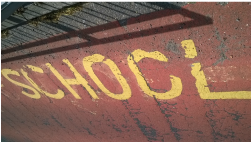 I’m ambivalent about school. On a personal level, I achieved good outcomes from my long ago schooldays, but this was more by dint of my capacity for obedience than any genuine nurturing of my intellect and creativity. (I’m always pleasantly surprised when children these days claim to enjoy school.) On a political level, the view that mass education can be used to weaken working-class culture sits alongside the genuine enthusiasm for learning I’ve witnessed in places where a school place can’t be taken for granted. 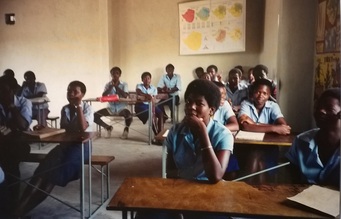 How does this translate into my reading and writing? As a child, I lapped up Enid Blyton’s boarding school stories, although the settings were worlds away from my own experience. The junior equivalent of the country-house genre, St Clare’s, Malory Towers and the like served merely as the backdrop for schoolgirl adventures. And that’s the thing with school stories, the experience is so near universal, it’s difficult to untangle the school aspect from the fact of being a child. When I wrote my bite-size memoir, School at Seven, it was more about friendship betrayed than education. Of my short fiction, school provides the setting for the hormone-heavy story of adolescence, Kinky Norm, and frames the parent-child conflict in both Jessica’s Navel and Elementary Mechanics. The epistolary Bathroom Suite is more about inequality than school refusal. 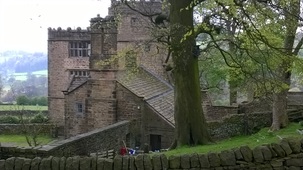 "Thornfield" in Jane Eyre "Thornfield" in Jane Eyre I’ve said it before and no doubt I’ll say it again: I love the webbiness of the World Wide Web. I love writing posts that link to other posts, both mine and other people’s, even as I worry that those phrases picked out in blue might impede the reading process. Even when I’m not forging links across the Internet, I enjoy rooting for commonalities, such as those between the novels of those writers featured in my debut novelists Q&A’s or plucking from my bookshelves novels on a specific theme, such as water or transgenerational trauma. (You can see how it gets obsessive and it’s little wonder my posts take so long to write.) Yet I’m much more cagey bringing different spheres of my own life into the blog. Yes, I’ll prattle on about gardening and make oblique references to the pleasure I get from singing in a choir. But until I started my series on fictional psychologists and psychotherapists, I kept my professional background entirely separate from my identity as a writer and, even now, the more structured and formalised are the alternative universes I occupy, the less comfortable I feel about providing a portal to them here. 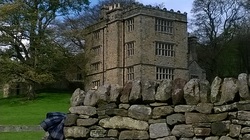 North Lees Hall AKA Thornfield in Jane Eyre North Lees Hall AKA Thornfield in Jane Eyre Grand houses loom large in literary fiction, from Charlotte Brontë’s Jane Eyre to Alan Hollinghurst’s The Stranger’s Child. There’s a seductive mythology around country houses that seems attractive even to writers with no direct experience of living or working in one. They also, as Blake Morrison points out in an article for The Guardian a few years ago, provide a convenient bridge from book to film. I thought it would be fun to mark the launch day of Johanna Lane’s debut novel, Black Lake, by examining the book from the perspective of the seven factors identified by Morrison as characteristic of the country-house novel. (Note that I’ve amended a couple of the headings to make them more pertinent to this post.) 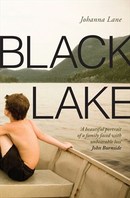 National identity: Morrison’s article focuses on the English house in a selection of four English novels. But he acknowledges that other countries have an equal or greater claim to the big-house novel: It's arguable that Irish country house literature surpasses ours, because the conflicts it dramatises – both political and religious – are on a larger scale. Black Lake is about one such Irish country house, Dulough in County Donegal. Its history reflects that country’s tragedies: land sold cheaply after the Famine to a Scotsman when Ireland was still part of the British Empire; dispossessed tenants; a questionable involvement with the IRA. In composing a history of his ancestral home, John Campbell moves between pride and shame, fiction and truth, so that he can hardly tell one from the other. |
entertaining fiction about identity, mental health and social justice
Annecdotal is where real life brushes up against the fictional.
Annecdotist is the blogging persona of Anne Goodwin:
reader, writer, slug-slayer, tramper of moors, recovering psychologist, struggling soprano, author of three fiction books. LATEST POSTS HERE
I don't post to a schedule, but average around ten reviews a month (see here for an alphabetical list), some linked to a weekly flash fiction, plus posts on my WIPs and published books. Your comments are welcome any time any where. Get new posts direct to your inbox ...
or click here …
Popular posts
Categories/Tags
All
Archives
March 2024
BLOGGING COMMUNITIES
|
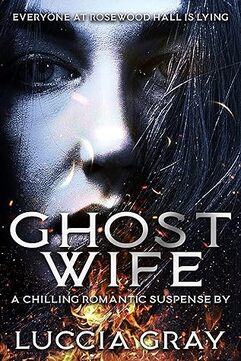
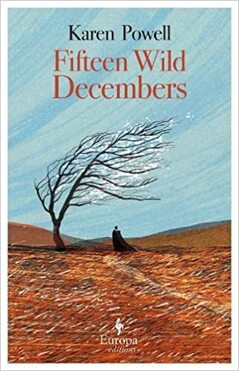
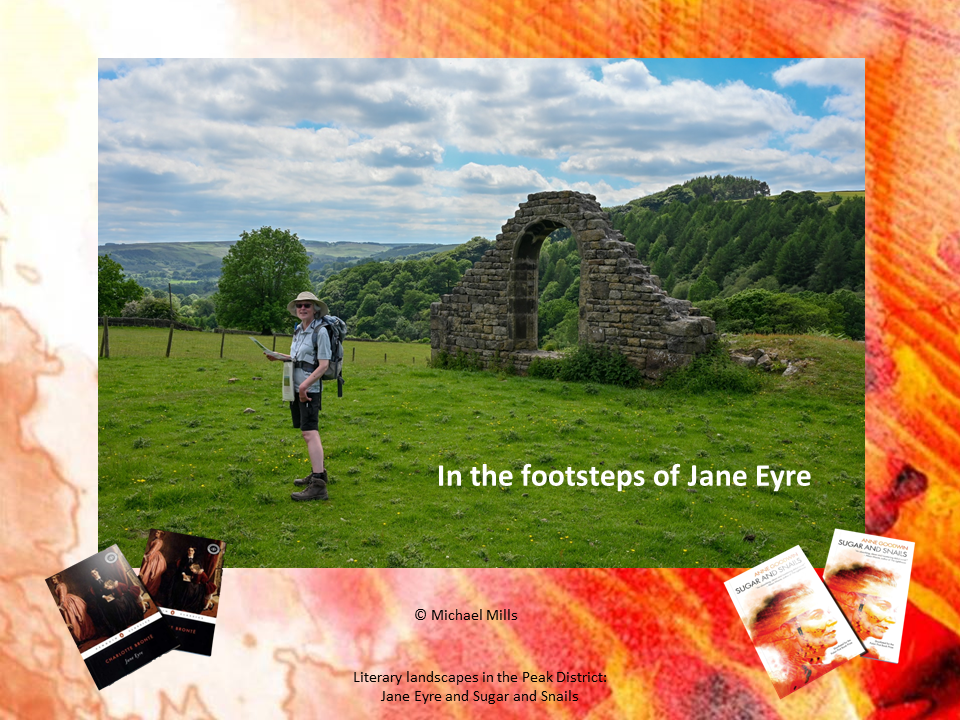
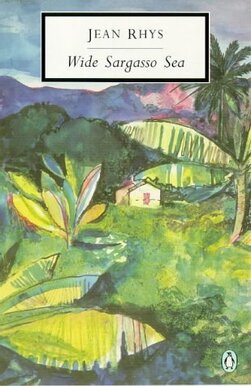
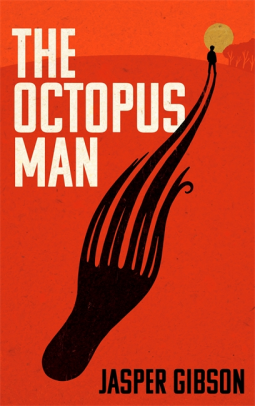

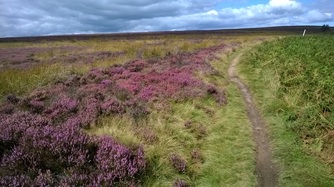
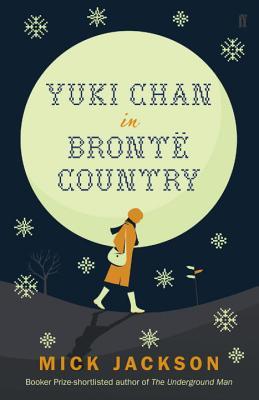





















 RSS Feed
RSS Feed





















